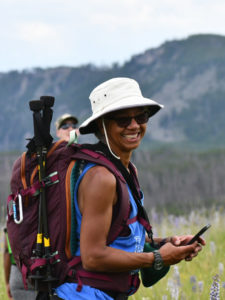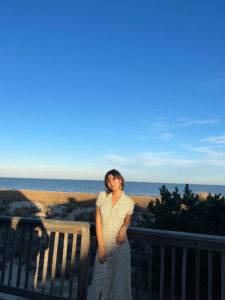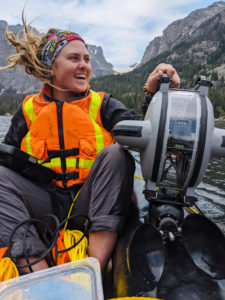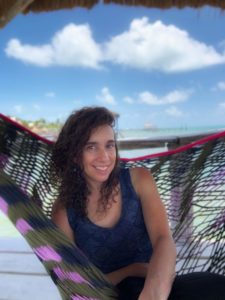
In honor of Women’s History Month, celebrated annually in the month of March, we highlight four women in the Warner College of Natural Resources who are making change to create opportunity, invite and celebrate diversity and lend their voices to the natural resources fields.
Click to read the full Q&A with each honoree where they discuss their current research projects, women who have inspired their careers and the advice they have for women entering the natural resources fields.
Gillian Bowser

Gillian Bowser is an associate professor in the department of Ecosystem Science and Sustainability in the Warner College of Natural Resources at Colorado State University. She also works as a research scientist at the Natural resource Ecology Lab.
“The public connects to stories and our national parks are in danger from external forces such as changing climate conditions and invasive species. What is the story of the bumble bees within Grand Teton National Park? These stories about the parks and their residences are what the public needs to hear. As the public is becoming increasingly culturally diverse, who tells those stories and how they are told matters more now than ever.”
Valerie Carrol

Valerie Carrol is a third-year Warner College of Natural Resources student majoring in Human Dimensions of Natural Resources at Colorado State University. Carrol is currently enrolled in the HDNR capstone class where she and her group are completing a semester-long case study on diversifying visitation to Rocky Mountain National Park.
“The most important piece of advice I have for women entering this degree field is to respect yourself, your values and your abilities. Remember to prioritize your own health and values, and to acknowledge your own skills and knowledge. There are many different career and academic related opportunities to take advantage of as CSU student, but don’t feel like you have to be involved in every possible opportunity to be successful. Find a balance between work and rest that works for you.”
Caitlin Charlton

Caitlin Charlton is a fourth-year master’s student in the Graduate Degree Program in Ecology. Her research interest lies in limnology with a specific focus on the effects of global change on mountain lake ecosystems, centered on changes to mountain lake algal productivity.
“I would tell all women entering this field that if you can dream it, you can find a way to make it happen. My project to map and monitor benthic algae in mountain lakes with underwater photogrammetry and underwater ROVs had not been attempted before. Finding people to work with that are supportive of big ideas and work life balance is crucial to success in grad school and in research, and I am so grateful to have found that here at CSU.”
Jen Solomon

Jen Solomon is an associate professor in the department of Human Dimensions of Natural Resources at Colorado State University. Solomon studies the human dimensions of biodiversity conservation with a focus on human behavior.
“Research we have done demonstrates that in the field of conservation there are also significant challenges. If you are a woman and have experienced challenges in the field of conservation such as harassment, salary inequity and difficulty negotiating, formal or informal inclusion, among others, know that you are not alone. Seek out allies of all genders to confide in and work together to support one another. “